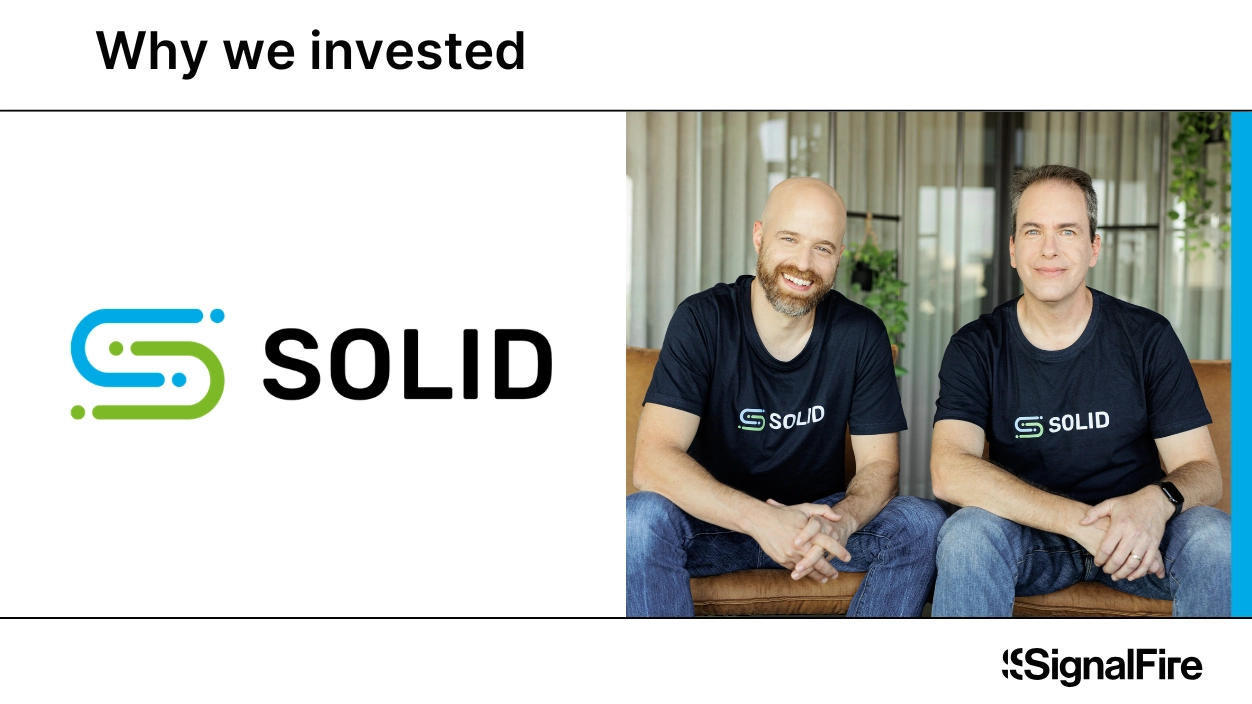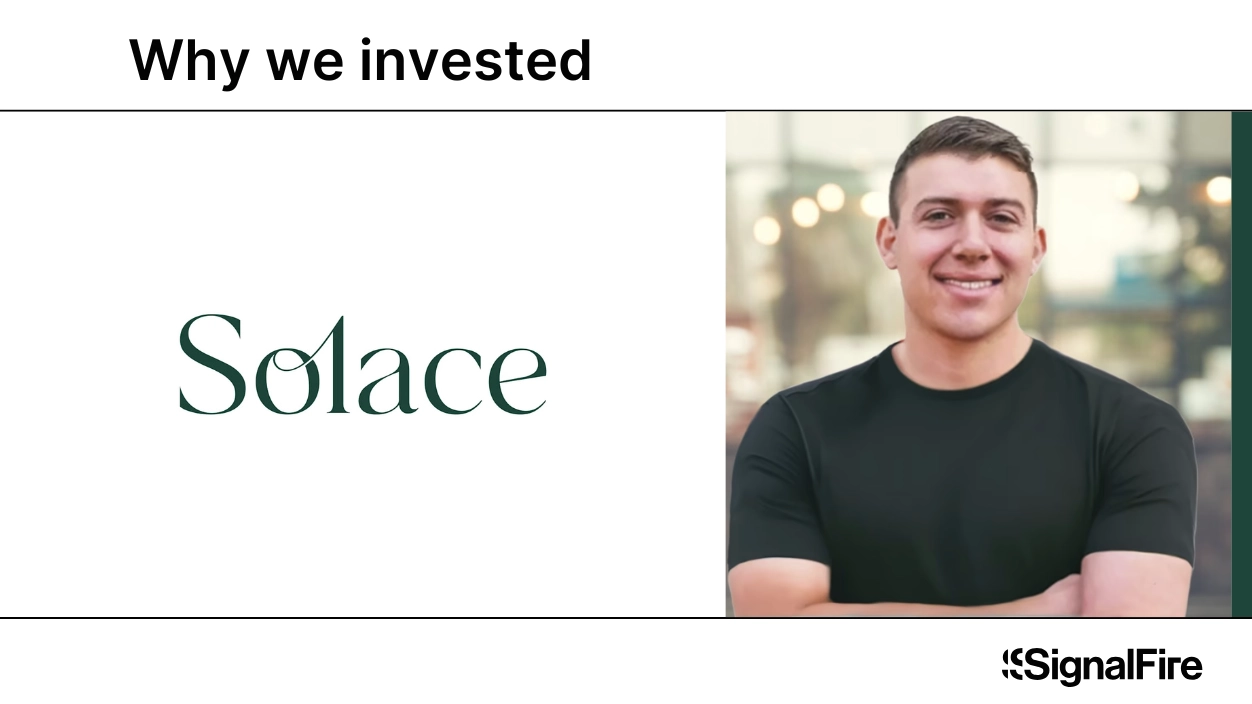
“When we started, people called us a boner company. They said that to be pejorative, to diminish our efforts. I didn't find that to be an insult. Addressing erectile dysfunction wasn't the sole purpose of the company, but we see the moments it unlocks between people. It's intimacy and love,” says Ro co-founder and CEO Z Reitano. “Take away all the bullsh*t, and what matters is people living a happy, healthy, fulfilled life.”
With today’s $500 million Series D at a $5 billion valuation, the jokes should be replaced with a different kind of name-calling that describes Ro as a unicorn (quintacorn?) charging towards an IPO. The telehealth primary care company now offers diagnosis, prescriptions, medication delivery, and ongoing care. But Reitano, who SignalFire has backed since Ro’s Series A, wasn’t in the mood to celebrate. One thing you’ll notice that’s missing from his quote about what matters in healthcare: Insurance.
 |
That’s because Ro doesn’t accept it. “It's clearly not working. Hasn't been working for 70 years,” Reitano says of health insurance. “The idea of giving insurers more power and control is preposterous. It's not that capitalism doesn't work in healthcare. It’s that we're incentivizing the wrong stakeholders. Insurers aren't incentivized to reduce the cost because employers pay.” And sadly, we all pay in the form of lower-quality care at higher prices.
Subscribe to SignalFire's newsletter for guides to startup trends, fundraising, and recruiting
$500M for patient-centric healthcare
That’s why Ro is building a new patient-centric healthcare system where it’s the people in need who control where the money goes. “We should have to fight for the right to take care of patients," Reitano insists.
Here’s a quick history lesson about how things got so broken. America froze wages during World War 2 to prevent inflation, so employers started offering better health insurance to attract talent. Then the IRS made employer-provided health insurance tax-exempt, making it the cheapest way to get it, so most Americans did. Then the government fixed health insurance company margins so they had to spend 80 to 85% of the money from premiums on providing care. That sounded good, but it means that one of the only ways for health insurance companies to grow cumulative profits is to...raise costs.
 |
Rising insurance premiums, according to KFF[/caption]The result is runaway insurance premiums and worker contributions. Premiums are up 54% just from 2010 to 2020. Medical expenses cause 66.5% of individual bankruptcies in the US. “An MRI costs the same as in 1984 when it came out. That's bananas! That thing should be running 24 hours a day. It costs $27 in Norway. There should be a Chipotle of MRIs!” Reitano says. We could clearly be doing better. He notes that Singapore pays for 50% of citizens' healthcare but it only costs 4% of GDP, not 18% like in the US. Meanwhile, 66.5% of individual bankruptcies in the US are caused by medical expenses.
Reitano’s own family was once in hundreds of thousands of dollars of medical debt, in part due to treatment for his heart condition, which had erectile dysfunction as a side effect of his medication. “I was actually one of the luckier ones,” he tells me, simply because none of his immediate family members had died. They lived through heart attacks, neurological disorders, and multiple bouts with cancer. Z says the only reason they survived was that his Dad was a doctor and could help them navigate the complexities of getting great care despite the dysfunctional insurance system. What gave me agency was having a world-leading expert by my side. That shouldn't be a requirement for what we see as a fundamental right.”
 |
Those experiences led Reitano to build Ro to destigmatize conditions like his and help other families beat the odds. That’s why Ro doesn’t accept insurance. “It exacerbates a system that reduces and limits the agency of patients over time, and I can't abide by that. I think the insurance companies will drive themselves into oblivion because they're endlessly greedy, increasing premiums and deductibles. When you remove the administrative burn of insurance and all the stakeholders who need to make money in the process, you can dramatically reduce the cost to patients,” Reitano explains. “People talk about how we're limited by not accepting insurance, but we are unleashed and unlocked to offer 10X better service!”
That doesn’t make Ro expensive. It sells generic versions of the 500 most common medications for just $5 per month each from its own pharmacy. A virtual doctor's visit is $15, which is cheaper than most co-pays. For $20 to $40 per month, it offers diagnosis, prescription, and delivery of brand name treatments for men’s and women’s health, hair loss, smoking cessation, dermatology, weight loss, and more. Plus, Ro's Health Guide site is challenging WebMD with self-serve medical info that's actually approved by doctors. “We start by building what patients need and then use technology to reduce the friction. It's the only way we do more with less," Reitano explains.
 |
Now Ro has the funding to bring its care offline and into the home in-person. The $500 million Series D co-led by our friends at General Catalyst, First Mark, and TQ Ventures is joined by Altimeter, Dragoneer, Baupost, Glen Tullman of Livongo, Box Group, Torch, and us at SignalFire. It's been a pleasure to equip Reitano and his team with our Beacon recruiting technology, competitive intelligence, sales lead intros, and in-house experts.
"Simply put, they're not like other VCs," Reitano wrote to another startup considering SignalFire. "They're engineers and operators — they've built it before. The other thing I love, and this is more personal, is that they are a new VC fund, which means they can't sit behind a brand name...they have to wake up every single day and work their tail off for their port cos. I first met [SignalFire’s seed fund MD] Wayne Hu on a holiday when no other VC would carve out time. [Venture partner] Tony Huie has been on the phone with me at 2 am helping me work through a strategy question. Their data science team helped our Head of Data solve a complex attribution problem . . . Every VC says they are value-add, but most don't have to prove it. I'm not kidding when I say SignalFire will always be there.”
COVID vaccines delivered
Ro’s years of building a national telemedicine practice, pharmacy network, in-home care platform culminated this month in one of its most important launches to date: Ro’s COVID-19 Vaccine Drive. Ro is now Ubering healthcare professionals to the homes of the elderly and homebound to administer vaccines to those who’d have trouble traveling to a traditional vaccination site.
 |
The launch comes in response to how difficult it’s been to book vaccine appointments through confusing government websites with unpredictable availability —especially for the less digitally literate. “Everyone felt the system was complicated. It felt rigged. They felt powerless. We’re not sure why our government can’t operate at the same efficiency as Amazon,” Reitano explains. Luckily, Ro acquired in-home healthcare API maker WorkPath in 2020 and had already facilitated 100,000 housecalls. “Because of our unique capability, I think we have a responsibility to help.”
So in December, Ro co-founder Saman Rahmanian got to work partnering with the NY Department Of Health and leading an “all on-hands on deck, 18 hour days for 4 weeks” sprint, Reitano explains. “People don't talk enough about choosing certain co-founders —why you need shared vision, shared values, shared work ethic. One attribute I'd add is that you're constantly amazed by what they can will into existence. Saman willed this into existence.”
Here’s how it works. An eligible patient or their guardian can go to https://www.covidvaccinedrive.com and sign up for an appointment. Rather than scrambling for open slots, Ro just puts you in the queue for the next available date and time window. Just like calling an Uber, you’ll get an ETA and visualization of your vaccinated healthcare professional heading to your home. They walk you through the standard protocol, collect any necessary info, administer your dose, and wait 15 minutes to check for adverse reactions. Uber has donated 10,000 rides to the cause, and any leftover doses will go to local fire departments and frontline workers.
 |
Reitano believes this convenience and quality of care would become standard if more of the healthcare system empowered patients to purchase their care directly. If employers or the government just gave patients the cash for routine service and saved insurance for catastrophes, “within 60 days, you’d see cucumber water in the waiting rooms. Hospitals would show prices and readmission rates. They'd compare quality of care versus the hospital down the street. In a world where you had $2 to $3 trillion every year at the discretion of patients, [care would] decrease in price, increase in quality, and increase in satisfaction.”
SignalFire’s “Convenient Health” thesis
We see patient-centric healthcare and finance as the fifth pillar of SignalFire’s “convenient health” investment thesis. We’re seeking startups offering:
- Democratized, destigmatized, more affordable access to care via telehealth
- Continuous, automatic, personalized data collection via wearables and smartphones
- Consumerization of the user experience and a reduction of reliance on pure will power
- Human doctors and experts in the loop, augmented with AI and automation to optimize quality of care
- Patient-centric control of billing to incentivize providers to improve their services
This thesis is why we’ve been long-time believers in Ro. It’s also led SignalFire to invest in telehealth startups like Form Health for weight loss, Bicycle Health for opioid dependency, Apostrophe for skincare, and OrthoFX for teeth alignment. We’ve also backed startups that make staying fit at home less work, like Down Dog for yoga and Tempo for weight lifting. We’re also supporting convenience in genetic testing with Color, surgeon training with Osso VR, and at-home clinical trials with Hawthorne Effect. If you’re building something to advance this vision for patient-centric healthcare, SignalFire would love to hear from you.
 |
“It’s paternalistic saying patients can't make the right decisions. Similar to the Winston Churchill quote, ‘Democracy is the worst form of government, except for all the others’, a patient might be the worst person to make their health care decisions except for everyone else.”
"We've been beat up and punched in the face for decades, and the only thing that the healthcare industry listens to is who controls the money,” Reitano concludes. “We're eating the edges of primary care. Others will eat the edges of insurance. I want to devote my life to this patient revolution."
Subscribe to SignalFire's newsletter for guides to startup trends, fundraising, and recruiting
*Portfolio company founders listed above have not received any compensation for this feedback and may or may not have invested in a SignalFire fund. These founders may or may not serve as Affiliate Advisors, Retained Advisors, or consultants to provide their expertise on a formal or ad hoc basis. They are not employed by SignalFire and do not provide investment advisory services to clients on behalf of SignalFire. Please refer to our disclosures page for additional disclosures.
Related posts

The missing layer in Enterprise AI: Why we invested in Solid

Why we invested in Solace: Making healthcare advocacy a standard of care

